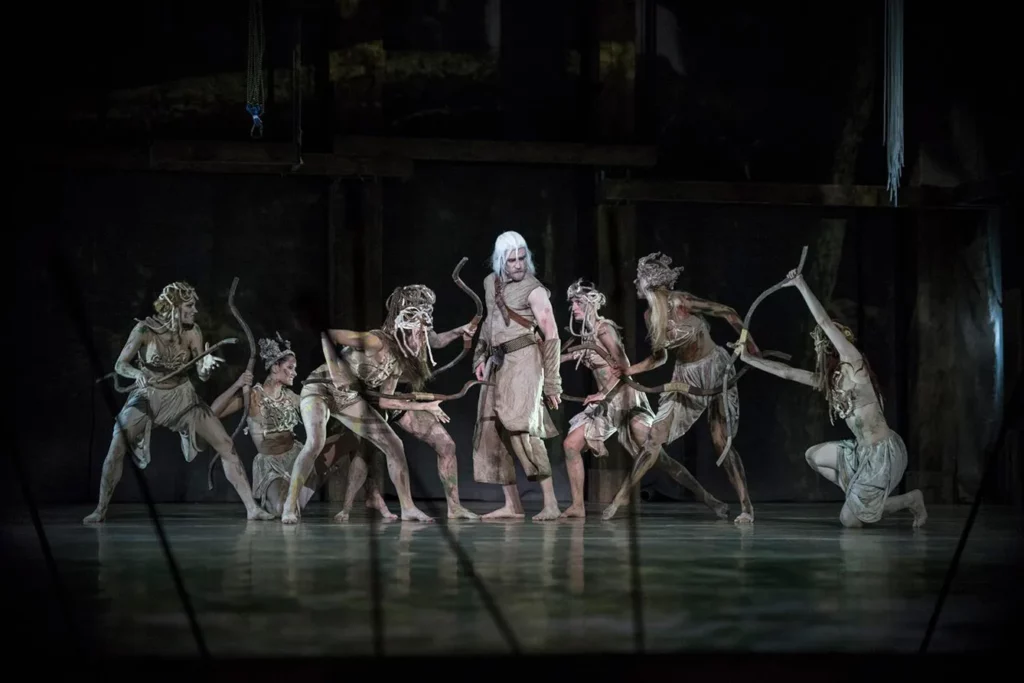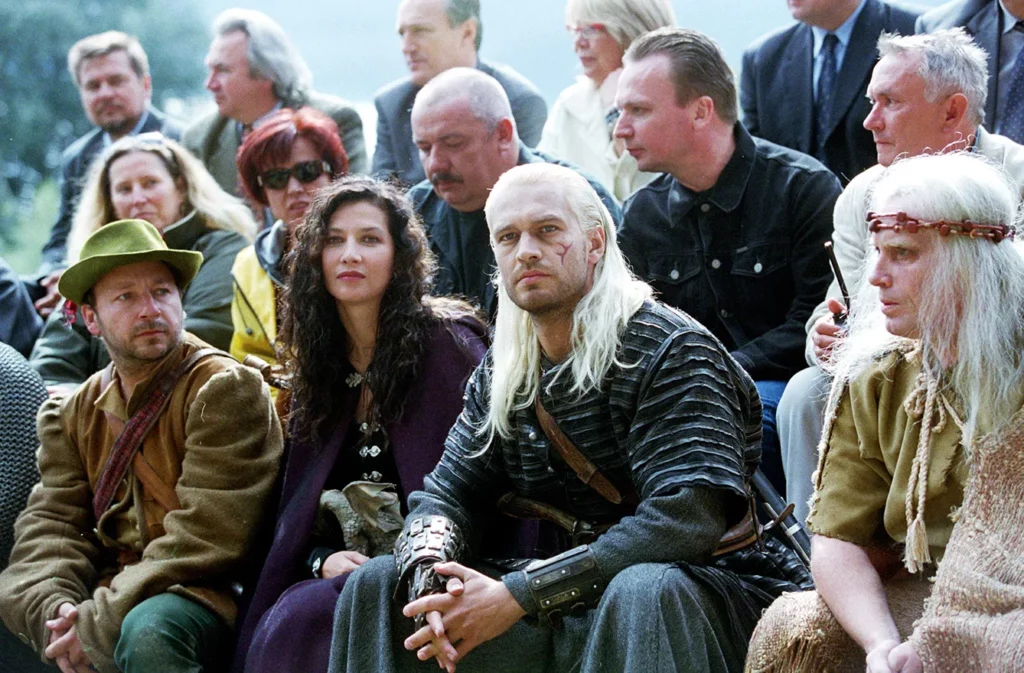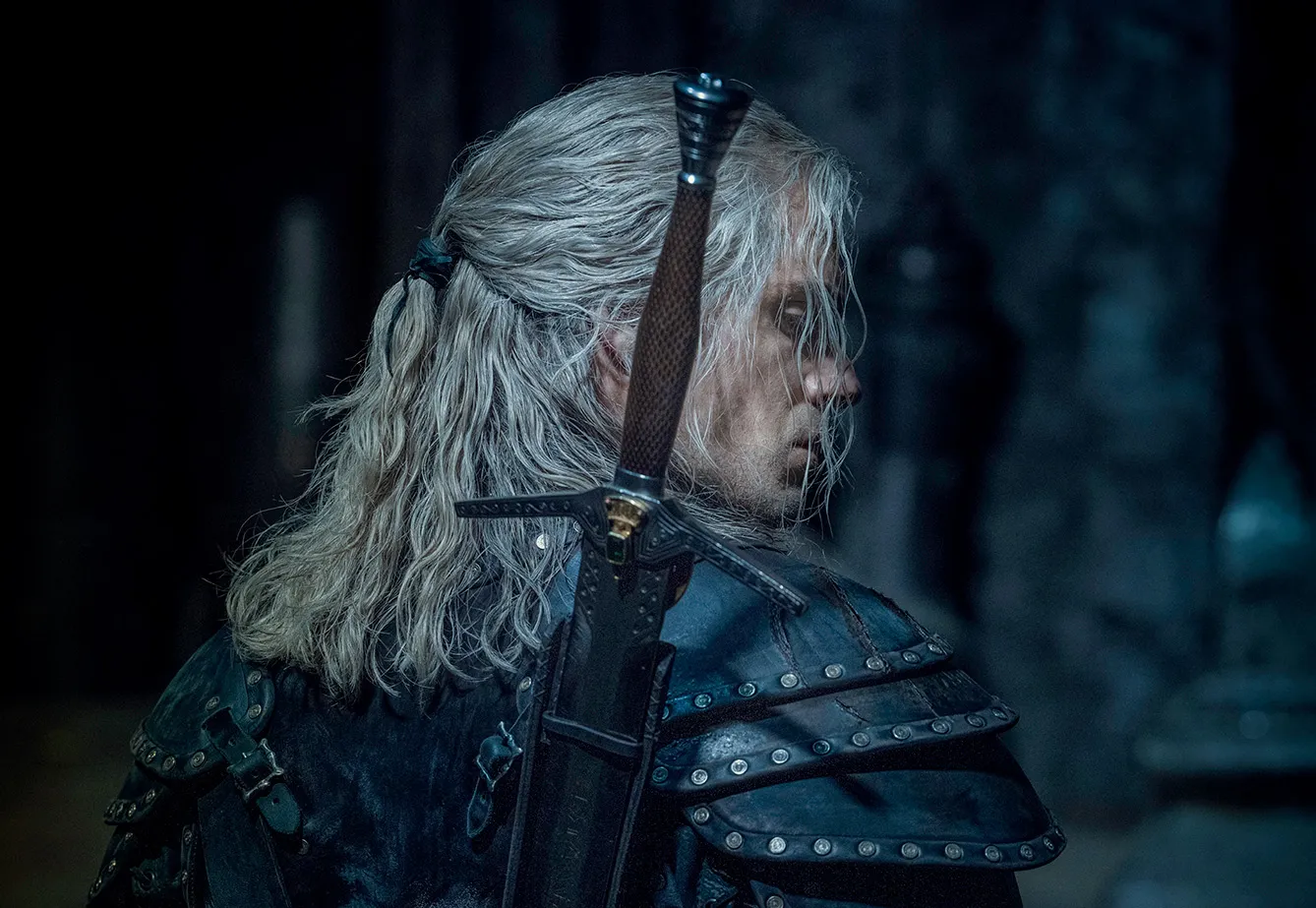Anyone who knows anything about the Polish fantasy genre must have heard of Geralt, the Witcher. The best-selling “Witcher” saga bears all the trademarks of its author’s witty style, intelligent sense of humor, and skillful storytelling. How exactly did the story of Geralt of Rivia gain such international success and recognition?
Short stories that achieved success thanks to… disappointment

Some of the best Polish classic novels were initially published by their authors as short, cyclical stories printed in newspapers. (Short disclaimer: this trend, of course, was not just present in Poland. For example, Charles Dickens was also a fan of such a solution.) The first story of the Witcher was published in the “Fantastyka” [Fantasy] periodical in December 1986. I could tell you that the man behind the arguably most successful Polish fantasy saga finally decided to share his brilliant stories, which he had worked on for years, but this would be… a lie.
It all began when Polish writer Andrzej Sapkowski entered his stories about the fantastical Geralt of Rivia into a competition that a magazine had launched in search of new talent. Of course, he won… not. Despite having to settle for the title of the runner-up, he continued to write the stories of Geralt, which were published in the periodical.
However, the subsequent publication was not due to the fact that his stories were so well-received. In fact, Sapkowski faced intense criticism from the early enthusiasts of the genre, as his outright satirical style was not what they imagined a fantasy novel should look like. They had little comparison as the contemporary masters of the genre mainly wrote in English and were not translated into Polish. Thankfully, Sapkowski did not care much for the sore critics, and after a few years, he announced he would publish a full-blown Witcher saga.
Andrzej Sapkowski’s even more successful disappointment
The first volume was published in 1994 and was, of course, criticized. The critics, although by then aware of Sapkowski’s unquestionable talent for storytelling, were slowly warming up to the idea of fantasy novels drawing on Slavic mythology and ancient history. Still, they believed the author was much better at writing short stories and claimed he lost his charm in longer narratives. Fans disagreed, and the book sold very well, as did the second, third, fourth, and fifth ones, turning Sapkowski into a mainstream, widely-read author. The heroes he created were so well-loved that it was just a matter of time before the spin-offs would appear on the market.
From comic books to the big screen
At first, “The Witcher” inspired the creation of a comic book series (in the early 1990s). In the early 2000s, Polish Television made a rather unsuccessful attempt at a screen adaptation. Despite the famous cast, the premiere had the misfortune to coincide with the release of The Lord of the Rings by Peter Jackson and, well… it didn’t stand up to the competition, to put it politely.




In 2017, an original Polish musical was written for the stage, based on the short stories of “The Witcher.” The play was first performed at the musical theatre in Gdynia (northern Poland) and, for a change, was warmly received. Its rocky style and acrobatic choreography were praised for capturing the essence of Geralt of Rivia. But all of the above ventures are still domestic ones. So what finally helped the Witcher cement its global fame?
The power of a quest
We need to look back to the 1990s, a time of technological advancement. A game developer, Metropolis Studio, approached Sapkowski and asked to be granted the rights to use the Universum in creating a game. He agreed.
However, the project fell through, and the author must have grown somewhat skeptical of the whole idea. So much so that when years later, the topic was revisited by Poland’s gaming giant, CD Projekt Red. Instead of accepting their initial proposition of royalties from further sales, he agreed to grant them the license to the Universum for a lump sum of money paid upfront. Little did he know that the game created by the studio was what would bring Geralt to the center of the fantasy stage abroad.
“The Witcher” (game) was released in 2007 and became a hit. It is estimated that the gaming trilogy earned the studio some PLN 1.5 billion. The lump sum requested by Sapkowksi amounted to… PLN 35,000. In total. Sapkowski developed a sore spot for the games, as he felt hard-done by the deal (he would openly say he was “stupid” refusing the royalties.) In interviews, he would harshly and publicly criticize the Studio and gamers. Finally, in 2018, he decided to pursue his rights in court and demanded CD Projekt pay him PLN 65 million as his rightful cut. In the end, the case was not heard in court, as both Parties reached an agreement (though the final settlement price remains a secret).
Lessons learned
After the “royalties drama,” questions about how much Sapkowski earns on one of the most viral creations of contemporary Polish literature started arising. Journalists smelled blood and took a peak into Sapkowski’s wallet. It turns out that, according to the internet portal wealthypersons.com, the author’s online value amounts to circa USD 18 million. Interest in his work indeed skyrocketed after the release of the games.
The games gave the impulse to boom in translations of the work. The author would stress that his works were translated before the game’s release. Still, it is undeniable that most translations, especially into German, English, Georgian, Lithuanian, Croatian, Swedish, Chinese, Spanish, and French, came after the game’s release. And although the trend of demand for “The Witcher” books is relatively stable and surprisingly high today, a large portion of money these days comes is thought to come from successful Netflix production.
Producers invited the author to act as an advisor. He claims he does not interfere much with the process, conscious that screen adaptations can never be completely faithful to the books, and two act more like counterparts than a reflection of one another. He does say he introduced minor changes to the script but refused to say what they were.
According to the showrunner of Netflix’s production, Sapkowski appreciated their work. He was visibly moved when he visited the set and saw the crew’s efforts at paying justice to the book. Although we are dangerously entering the field of gossip, one thing is certain – Sapkowski learned his lesson from the CD Projekt dispute, and it is speculated that the deal with Netflix is, for a change, not… disappointing.
P.S. If you are a fan of either of the big productions – do read the saga. It is well worth it!







